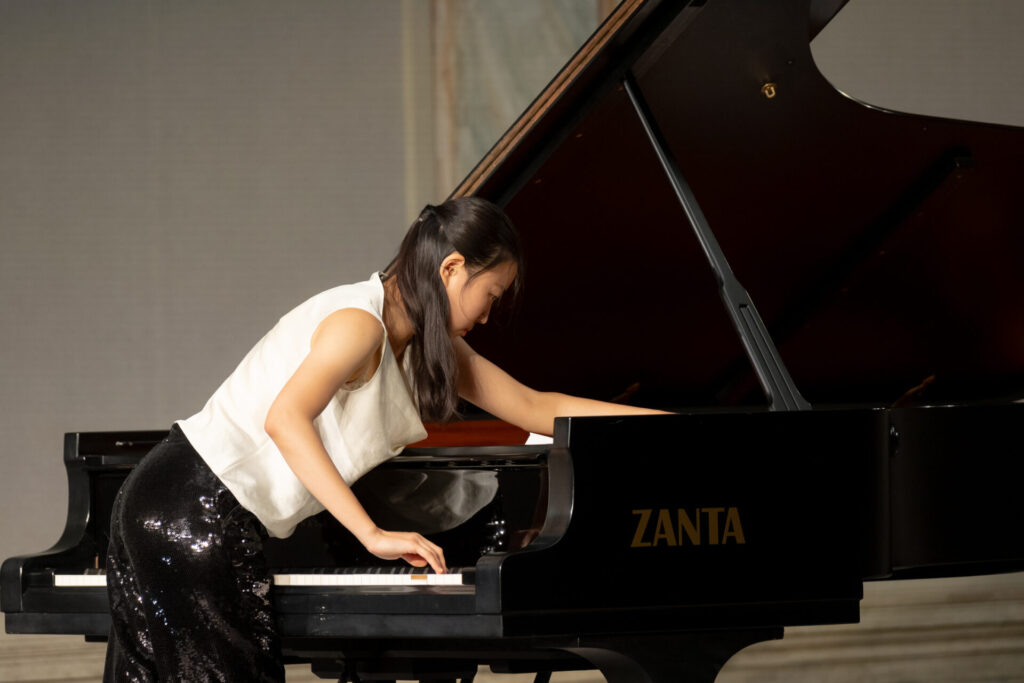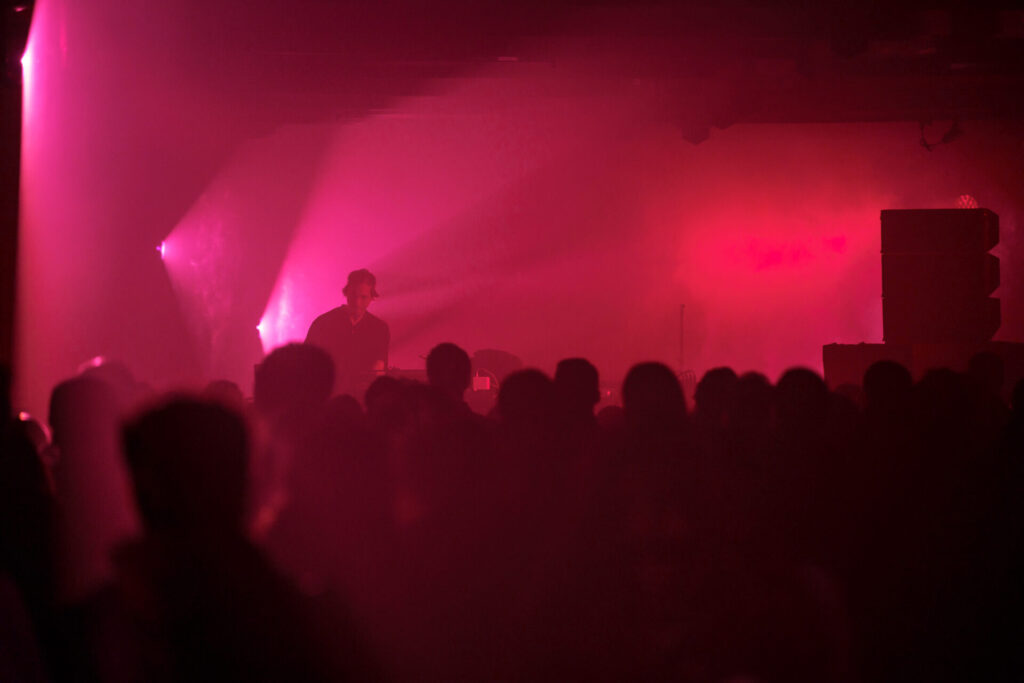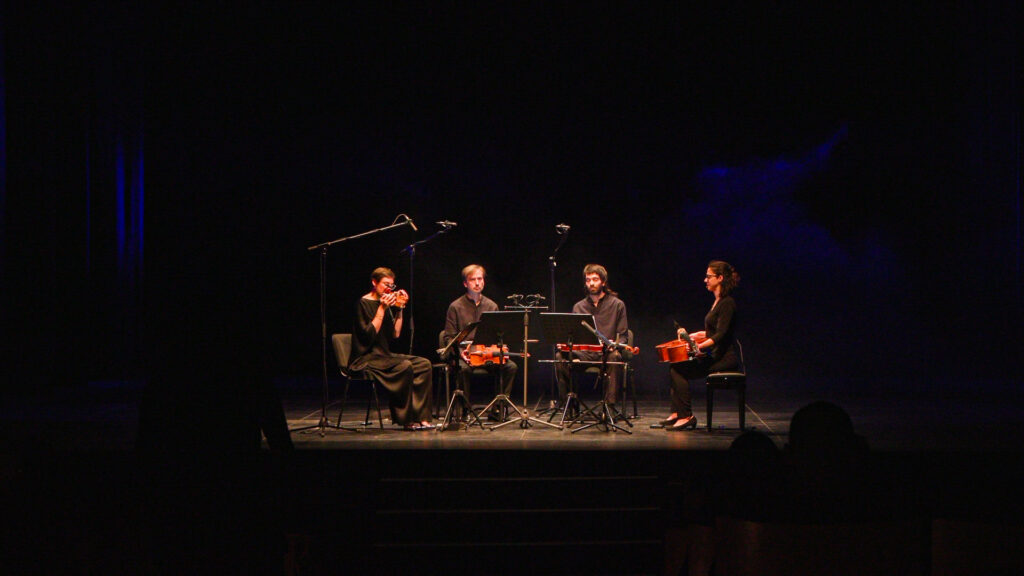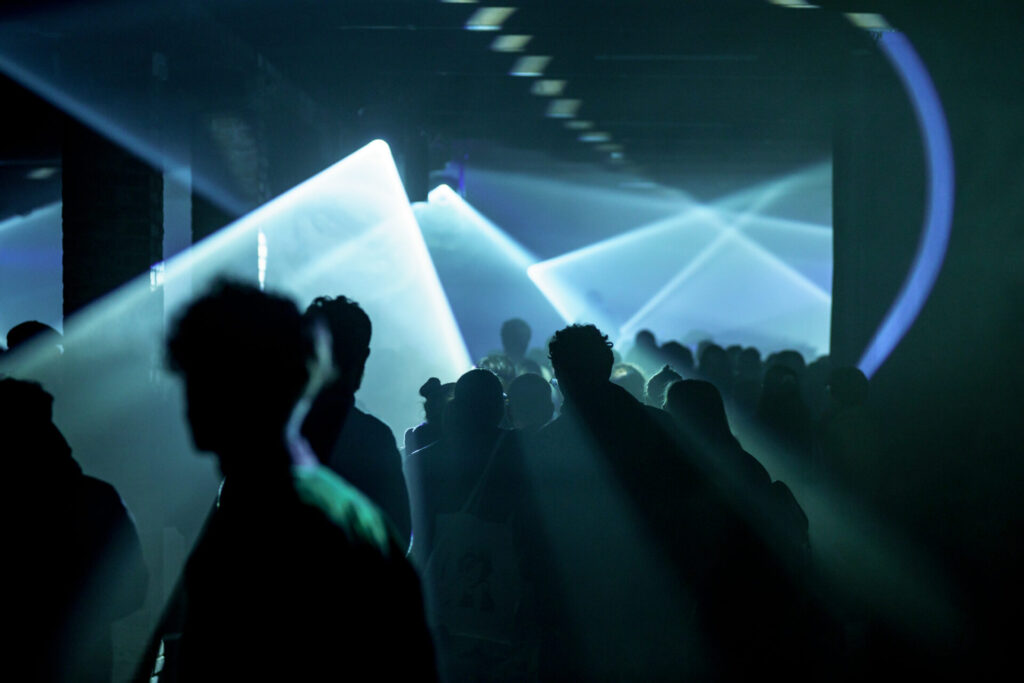When heavy metal bands reach for classical music references, they tend to lean Germanic: Richard Strauss, Carl Orff, Wagner, that sort of thing. They are wrong. The most metal composer on Earth is Galina Ustvolskaya – and it’s not even close. Ustvolskaya’s music is brutal. Some of her piano sonatas call for the keys to be smashed using fists and elbows with extreme force. I’ve seen pianists take their bows with blood dripping with their hands. I’ve seen the bass strings on a Steinway grand snap like twigs.
When I took my seat in the grand Sala delle Colonne of the fifteenth-century palazzo Ca’ Giustinian, I was expecting to be bludgeoned. I was expecting violence. So when violinist Patricia Kopatchinskaja and pianist Markus Hinterhäuser started up the Sonata of 1952, I was initially somewhat taken aback.
The piece sounded almost romantic, albeit more E.T.A. Hoffmann than P.B. Shelley. It had an eerie, gothic sensibility. Certainly, it was not without a certain astringency in places. At one point Kopatchinskaja sounded like she was determinedly hacking through an especially knotty hunk of wood. But the bow scarcely lost a hair. No strings were broken. No blood was spilled.
The second item on the bill, however, a somewhat later piece from 1964 called simply Duetto, came much closer to my expectations. Long stretches of almost nothing – the soft whistle of a violin harmonic, a distant rumble from the depths of the piano – were abruptly punctuated by sudden bursts of ultra-violence. BLAM SKREECH THUNG CRAAAAAACK.
If it had been a movie, it would have been directed by Argento or Peckinpah or Ruggero Deodato. It would be on the Video Nasties list. Mary Whitehouse would have been appalled. Teenage headbangers everywhere would love it.

But there was something oddly appropriate to the quasi-romantic start to my sojourn at this year’s Biennale Musica (an event which, confusingly, takes place every year). Because in 2024, the theme of the festival is Absolute Music.
In the festival programme, artistic director Lucia Ronchetti speaks of a desire to “bring out the meaning of music as an autonomous language”. It’s an idea with roots in the nineteenth century, when critics like Eduard Hanslick would insist that music is “not a means for representing feelings and thoughts” but simply “an end in itself”.
“The essence of music,” Hanslick claimed in his landmark essay of 1854, On the Musically Beautiful, “is sound and motion.” As far as the eminent Viennese writer was concerned, “it speaks nothing but sound.” It was meant as a pointed rebuff to the programmatic symphonies of Hector Berlioz, with their extramusical narratives about opium dreams and unrequited love, and the orchestral ‘poems’ of Franz Liszt, with their lyrical reveries conjuring scenes of men weeping on mountaintops.
The response of Richard Wagner was withering. “The advocates of an absolute music obviously don’t know what they’re talking about,” he wrote in 1857. But for a while at least, as the nineteenth century rolled into the twentieth, it looked as though the advocates for musical autonomy would win.

Arnold Schoenberg believed that the “true essence” of music lay in its purely abstract nature. Stravinsky, likewise, was convinced that if “music appears to express something, this is but an illusion, and not a reality.” In 1978, the German critic Carl Dahlhaus would recognise that “In our century, the idea of absolute music has come to dominate musical life as never before.”
It’s not an especially fashionable viewpoint these days. Contemporary critics tend to snort at artists who insist it’s all about the music. So would I, usually. I find it pretty hard to believe we can suddenly lose access to all our other senses, our memories, our hang-ups, and our fantasy lives, the moment we walk through the doors of a concert hall and take a seat. Of course all those other things will affect our experience of the sounds that take place there. How could they not?
But – hear me out for a minute – what if we were to pretend just for a bit that it doesn’t? What if, like Jack Nicholson’s Joker covering up his clown make-up with normal person make-up, we stretch and pull our imaginations to the point where we can imagine that we do not in fact possess imaginations? What happens then? Might such an effort of abstraction, even if only temporary, yield a bounty in formal experimentation that could otherwise have slipped through the net? Sometimes, as they say, a cigar really is just a cigar.
When we think of sound just as sound, we get to appreciate things like the way Miharu Ogura’s Rifrazione made the piano sound like three totally different instruments playing against each other, the way her dense landscape of stacked trills created a strange, unstable texture of ripples and stumbles. You get to zero in on the rich howls that pianist Chisato Taniguchi drew from her instrument by stroking a rubber powerball against the strings in her performance of Alberto Posadas’s Erinnerungsspuren, or the shifting clouds of decay created later in the same piece by changing the fingering under a great big cluter chord with the sustain pedal depressed.

For the young Serbian composer Hristina Šušak, it’s a particular kind of formalism that leads to the revelatory choice to open her string quartet with all four musicians gently blowing into the f-holes of their instruments. For Tim Hecker, playing at the Forte Marghera across the water in Mestre, it led to deep, penetrating waves of bass, washes of guitar-like distortion and peals of sirens worthy of Varèse swimming in a beatless ocean of sound. For Michael Pisaro-Liu, whose Mind is Moving (V) received its Italian premiere in the Sala delle Colonne, it produced a tender exploration of a viola’s natural harmonics in a performance by Hannah Levinson so fragile, it felt like walking on eggshells.
I spent three nights and four days in Venice and it rained like hell for most of them. Honestly, it was not always that easy to pretend that my feet weren’t wet and that I didn’t have a cold coming on and that the only thing that mattered was the particular combination of tonally moving forms bouncing around whichever crumbling old theatre I happened to be sat, sodden and congested in. But in spite of that, by the end of it all, I was getting back on my plane to London with a head full of ideas – ideas not about staging or lighting or extramusical concepts or whatever, but really just about sound: sounds in combination or sometimes in isolation, abstracted from everything, an autonomous language.



